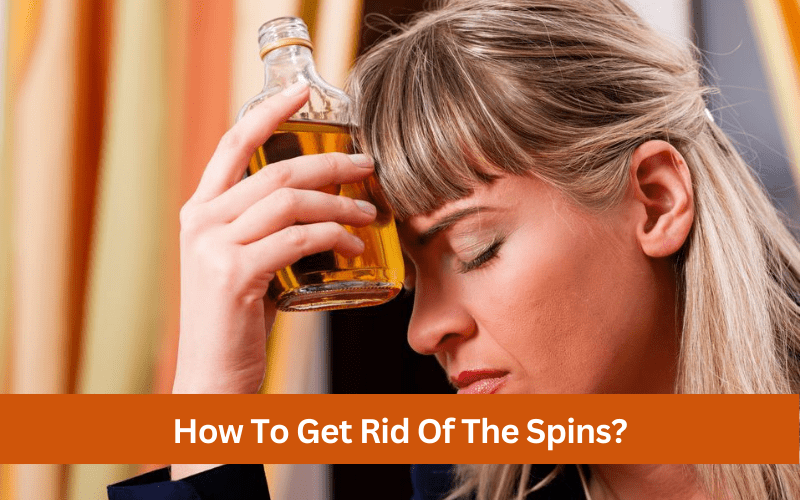Waking up with a hangover is a terrible way to start the day. But waking up with the spins when drunk is a whole other level of misery. At that time, all you want to do is find out how to get rid of the spins, right. I remember the first time it happened to me; I felt like the world was spinning around me and couldn’t focus on anything. It was like I was on a never-ending tilt-a-whirl ride. I quickly learned that the spins were a common side effect of drinking too much alcohol, but that didn’t make them any less awful. Over time, I’ve discovered a few tips and tricks for getting rid of the spins when drunk. If you’ve ever found yourself in a similar situation, keep reading to find out how to get rid of the spins and take back control of your day.
What are the Spins?
The spins refer to a sensation of dizziness or vertigo that can occur in various situations. It is often described as a feeling of disorientation or a spinning sensation, and can be caused by various factors such as alcohol consumption, inner ear problems, or certain medications. The spins can affect a person’s balance and sense of direction, and may lead to other symptoms such as nausea or vomiting.
Types of Spins
There are two main types of spins: objective and subjective.
Objective spins are a type of vertigo where a person feels like the world around them is spinning or moving, but in reality, it is not. This type of spin is caused by a problem in the inner ear or the vestibular nerve.
Subjective spins are also a type of vertigo, but in this case, the person feels like they are spinning or moving themselves. This type of spin is often related to an issue with the brain or nervous system, and can be caused by factors such as anxiety or medication.
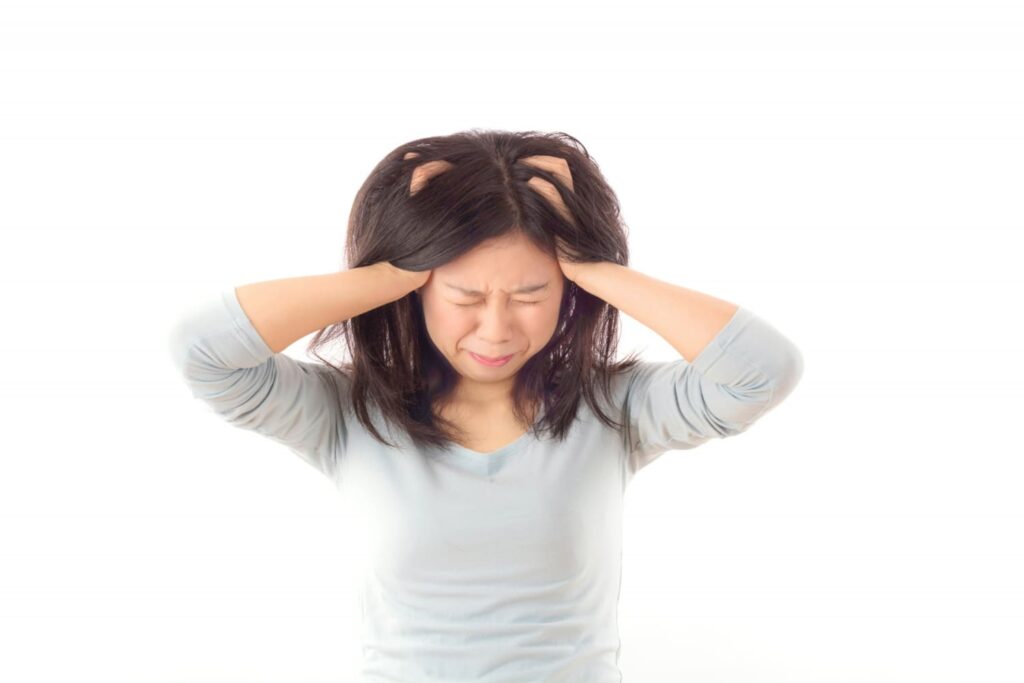
What Causes the Spins?
The spins can be caused by various factors, including:
- Inner ear problems, such as benign paroxysmal positional vertigo (BPPV), Meniere’s disease, or labyrinthitis
- Alcohol consumption or drug use
- Medications that affect the inner ear or central nervous system
- Migraines or other neurological conditions
- Dehydration or low blood sugar levels
- Anxiety or stress
- Changes in air pressure, such as during air travel or scuba diving
- Trauma or injury to the head or neck
- Aging or degenerative changes in the inner ear
- Certain medical conditions, such as stroke or multiple sclerosis.
Symptoms Of The Spins
The symptoms of the spins can vary depending on the underlying cause, but generally include:
- Dizziness: Feeling lightheaded or unsteady, as if the room is spinning or moving.
- Vertigo: A sensation of spinning or movement, even when the person is not moving.
- Nausea: Feeling sick to the stomach or the urge to vomit.
- Vomiting: Throwing up due to the dizziness and nausea.
- Sweating: Excessive sweating due to dizziness.
- Headaches: Pain or pressure in the head, often accompanied by dizziness.
- Ringing in the ears: Tinnitus or ringing sound in the ears.
- Fatigue: Feeling tired or weak due to the dizziness and nausea.
- Loss of balance: Difficulty maintaining balance or standing upright, which may lead to falls.
- Visual disturbances: Blurred vision or double vision, sensitivity to light or difficulty focusing.
Note that experiencing the spins can be a sign of a more serious underlying condition, especially if the symptoms are persistent or severe. If you experience any of these symptoms, it’s important to seek medical attention to determine the underlying cause and receive appropriate treatment.
How to Get Rid of Spins?
There are various ways to know how to get rid of the spins, including stopping alcohol consumption, focusing on stationary objects, closing your eyes, getting fresh air, hydrating, resting, eating light meals, and using remedies like ginger or essential oils. It’s important to seek medical attention if symptoms persist or worsen.
How to get rid of the spins when drunk?
- Stop drinking: The first step is to stop drinking and find a safe place to sit or lie down.
- Focus on a stationary object: To help reorient yourself, try focusing on a stationary object such as a wall or the ground.
- Close your eyes: Closing your eyes can also help reduce the spinning sensation and may help you feel more grounded.
- Get fresh air: If possible, step outside and get some fresh air to help clear your head.
- Drink water: Drinking water can help hydrate your body and reduce symptoms.
- Wait it out: The spins typically go away on their own, so it’s best to wait it out and avoid any sudden movements that could make the symptoms worse.
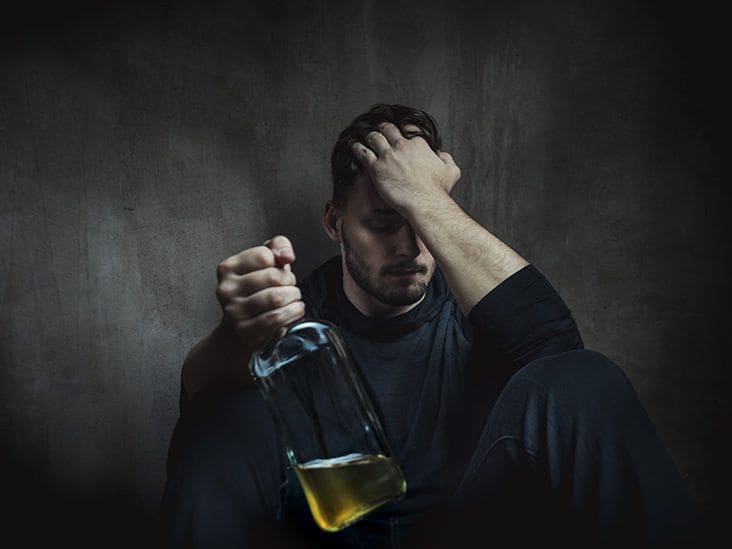
How much alcohol can lead to spins?
The amount of alcohol that can lead to the spins varies from person to person and depends on various factors such as age, weight, gender, and tolerance to alcohol.
Generally, the spins are more likely to occur when a person drinks too much alcohol too quickly. Consuming more than one drink per hour can increase the risk of experiencing the spins.
Additionally, consuming large amounts of alcohol, such as binge drinking or heavy drinking, can also increase the likelihood of experiencing the spins and other negative side effects.
How does alcohol cause the spins?
Here are several ways in which alcohol can cause the spins:
- Affecting the inner ear: Alcohol can affect the fluid levels in the inner ear, which can lead to a loss of balance and spatial orientation.
- Altering brain function: Alcohol can affect the brain’s ability to process information from the eyes and inner ear, leading to confusion and dizziness.
- Dehydration: Alcohol can cause dehydration, which can lead to a drop in blood pressure and a feeling of lightheadedness.
- Changes in blood sugar: Alcohol can cause changes in blood sugar levels, which can also contribute to dizziness and vertigo.
- Triggering migraines: For some people, alcohol can trigger migraines or other types of headaches that can cause dizziness and other symptoms.
- Interacting with medications: Alcohol can interact with certain medications, such as those for anxiety or depression, and increase the risk of dizziness or vertigo.
How to get rid of the spins when hungover?
- Rest: Getting rest is crucial when dealing with a hangover and the spins.
- Hydrate: Drinking water or sports drinks with electrolytes can help replace fluids lost due to alcohol consumption and reduce symptoms.
- Eat something: Eating a light meal, such as toast or crackers, can help settle your stomach and provide some energy.
- Avoid stimulants: Avoid caffeine or other stimulants as they can exacerbate symptoms.
- Take over-the-counter medications: Over-the-counter medications such as ibuprofen or acetaminophen can help relieve headache or other pain associated with the hangover.
How to get rid of the spins without throwing up?
- Keep your head still: Avoid moving your head or changing positions as it can worsen symptoms and trigger nausea.
- Focus on your breathing: Deep breathing can help calm the body and reduce symptoms.
- Drink water: Sipping water or a clear, carbonated drink can help settle the stomach and reduce symptoms.
- Ginger: Ginger is known for its anti-nausea properties, and can be consumed as a tea, capsule or as a ginger ale drink.
- Use essential oils: Essential oils such as peppermint, ginger or lavender can help reduce nausea and promote relaxation.
Does Throwing up Help the Spins?
Throwing up can sometimes help relieve the symptoms of the spins, particularly if the cause of the dizziness is related to alcohol or other substances that have been ingested.
Vomiting can help eliminate the toxins from the body and may alleviate feelings of nausea or dizziness. However, throwing up is not a recommended or effective treatment for the spins, and it should not be relied on as a solution.
If you are experiencing the spins, it’s best to seek medical attention and follow proper treatment methods to address the underlying cause and relieve the symptoms.
Risks of Throwing up to Treat the Spins
While throwing up can provide temporary relief for the symptoms of the spins, it can also pose several risks and should not be relied on as a long-term solution. Some of the risks associated with throwing up to cure the spins include:
- Dehydration: Throwing up can lead to dehydration, which can exacerbate symptoms and lead to other negative health effects.
- Electrolyte imbalance: Throwing up can cause an imbalance in electrolytes, which can lead to muscle cramps, weakness, and other health issues.
- Damage to the esophagus: Frequent vomiting can damage the esophagus and cause inflammation or other health issues.
- Tooth decay: The acid from stomach contents can erode tooth enamel and lead to tooth decay.
- Nutritional deficiencies: Throwing up can lead to nutritional deficiencies, which can cause a variety of health problems over time.
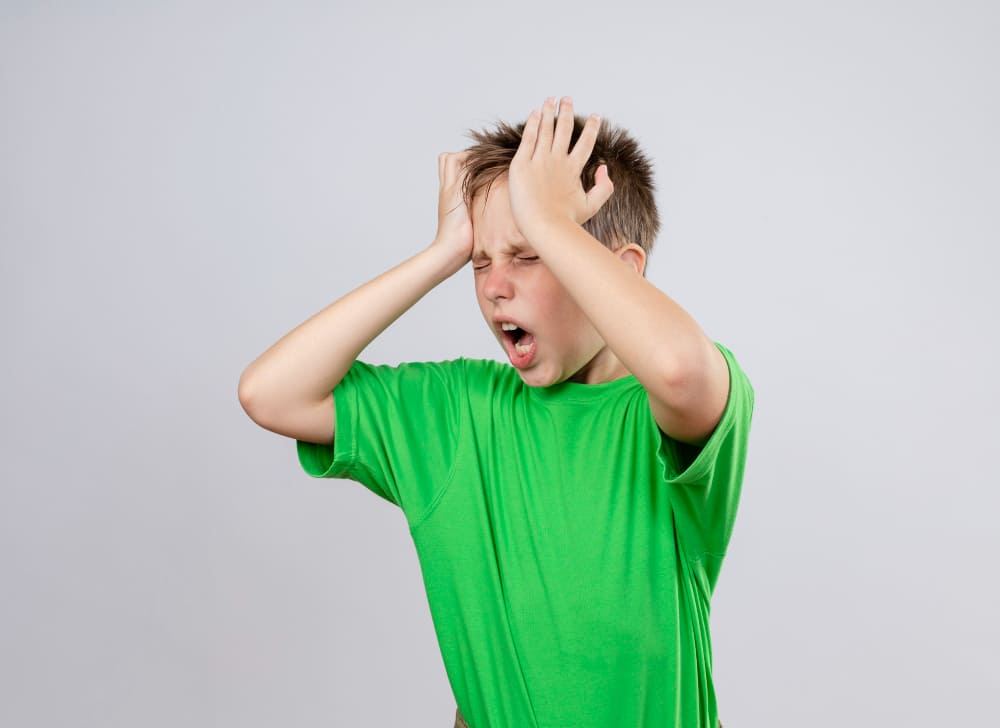
How to Diagnose the Spins?
The diagnosis of the spins typically involves a medical evaluation and physical examination by a healthcare professional.
The evaluation may include a review of your medical history, a discussion of your symptoms, and a physical examination to assess your balance, coordination, and hearing. Additional tests or imaging studies may be ordered to determine the underlying cause of the spins.
Some of the diagnostic tests that may be used to determine the cause of the spins include:
- Hearing tests: These tests can determine if the spinning sensation is related to problems with the inner ear, such as vestibular dysfunction or Meniere’s disease.
- Imaging studies: Magnetic resonance imaging (MRI) or computerized tomography (CT) scans can help identify structural abnormalities or other underlying issues in the brain or inner ear.
- Blood tests: Blood tests can help identify any underlying medical conditions or issues, such as anemia or hypoglycemia, that may be contributing to the symptoms.
- Neurological tests: Neurological exams can help evaluate the function of the nervous system and identify any issues that may be contributing to the spinning sensation.
How Long Do the Spins Last?
The length of time that the spins last can vary depending on the underlying cause and individual factors. In some cases, the spins may only last a few seconds or minutes, while in other cases, the symptoms may persist for several hours or even days.
For example, if the cause of the spins is related to inner ear problems, such as benign paroxysmal positional vertigo (BPPV), the symptoms may last for several seconds or minutes before subsiding. However, if the cause of the spins is related to alcohol or drug use, the symptoms may persist until the body has metabolized the substance.
Why Do I Keep Getting the Spins after a Night of Heavy Drinking?
If you keep getting the spins after a night of heavy drinking, it may be a sign of an underlying issue with your body’s ability to process alcohol.
Excessive drinking can induce dehydration, blood sugar fluctuations, and inner ear damage, which can produce spinning. Heavy drinking can also cause alcohol-related vestibulopathy, which causes dizziness, balance issues, and other symptoms.
If you keep experiencing the spins after a night of heavy drinking, seek medical attention to determine the underlying cause and receive appropriate treatment. This may include abstaining from alcohol or reducing your intake, managing any underlying health conditions, and making lifestyle changes to improve your overall health and well-being.
How to Prevent the Spins?
To prevent the spins, you can take the following steps:
Drink responsibly
Avoid drinking too much alcohol too quickly. Stick to moderate drinking limits and pace yourself throughout the night.
Stay hydrated
Drink plenty of water and other non-alcoholic beverages to stay hydrated and reduce the risk of dehydration.
Avoid stimulants
Avoid consuming caffeine or other stimulants, as they can exacerbate symptoms and increase the risk of dizziness or vertigo.
Take breaks
Take regular breaks from drinking to give your body time to process the alcohol.
Get enough sleep
Getting enough sleep is crucial for maintaining good health and reducing the risk of negative side effects associated with alcohol consumption.
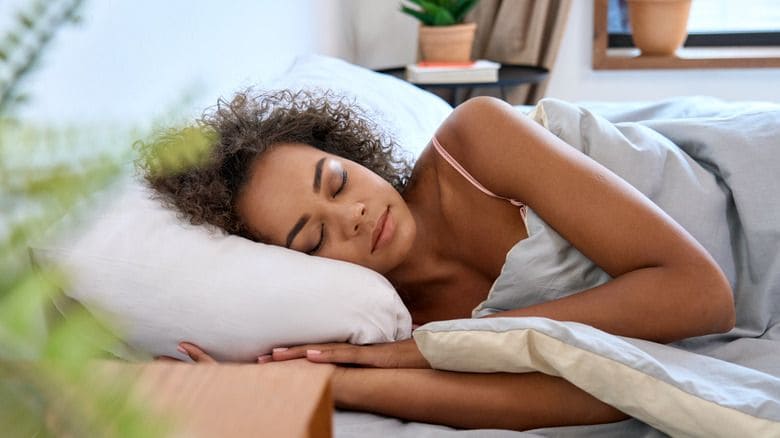
Manage underlying health conditions
If you have an underlying health condition that can affect your balance or cause dizziness, such as migraines or Meniere’s disease, make sure to manage it properly and follow your healthcare provider’s advice.
Avoid certain activities
Avoid activities that can exacerbate the symptoms of the spins, such as driving, operating heavy machinery, or performing tasks that require coordination and balance.
FAQs
What medications are used to treat the spins?
Medications such as anti-nausea medications, antihistamines, and vestibular suppressants may be prescribed to alleviate the symptoms of the spins.
Are there any long-term effects of the spins?
If the spins are related to an underlying medical condition, such as a concussion or head injury, there may be long-term effects. It’s important to seek medical attention if you experience the spins frequently or if the symptoms are persistent or severe.
Can I drive or operate machinery with the spins?
No, it’s not safe to drive or operate machinery with the spins. It’s best to rest and wait until the symptoms subside before attempting any activities that require coordination or balance.
Can relaxation techniques help with the spins?
Yes, relaxation techniques such as deep breathing, meditation, and yoga may help reduce the symptoms of the spins by promoting relaxation and reducing stress and anxiety.
Can the spins be dangerous?
While the spins are generally not dangerous, they can be uncomfortable and may interfere with daily activities. If you experience the spins frequently or have other concerning symptoms, it’s important to seek medical attention.
When should I seek medical attention for the spins?
You should seek medical attention if you experience the spins frequently or if the symptoms are severe or persistent. Additionally, if the spins are accompanied by other symptoms such as hearing loss, ringing in the ears, or loss of balance, it’s important to seek medical attention immediately.
Can the spins be related to a concussion or head injury?
Yes, the spins can be related to a concussion or head injury. If you have experienced a head injury or have concerns about a possible concussion, it’s important to seek medical attention.
How can I prevent the spins from happening again?
To prevent the spins from happening again, it’s important to avoid triggers such as alcohol, caffeine, and other stimulants. Additionally, staying hydrated, getting enough sleep, and managing underlying health conditions can help reduce the risk of experiencing the spins.
Can medication cause the spins?
Yes, certain medications can cause the spins as a side effect. If you experience the spins after starting a new medication or changing the dosage of an existing medication, it’s important to speak with your healthcare provider.
What is alcohol-related vestibulopathy?
Alcohol-related vestibulopathy is a condition characterized by persistent dizziness, balance problems, and other symptoms related to alcohol consumption. It is thought to be caused by damage to the inner ear and can occur as a result of chronic alcohol abuse.
Conclusion
As shown above, learning how to get rid of the spins is essential for anyone who has ever experienced the unpleasant feeling of dizziness, especially when under the influence of alcohol. By taking the steps outlined in this comprehensive guide, you can effectively manage the spins and prevent them from interfering with your daily life. Remember to seek medical attention if necessary and to make lifestyle changes that can help reduce the frequency of the spins. With patience, determination, and the right approach, you can conquer this challenge and get back to enjoying life without any unpleasant dizziness.
I’m Chen Mina, from Vol de Nuit, who has a special passion for bartending, especially mixing wine, beer, and cooktail. Here you will find content about alcoholic beverages, I will bring you knowledge that few people know about this drink.

